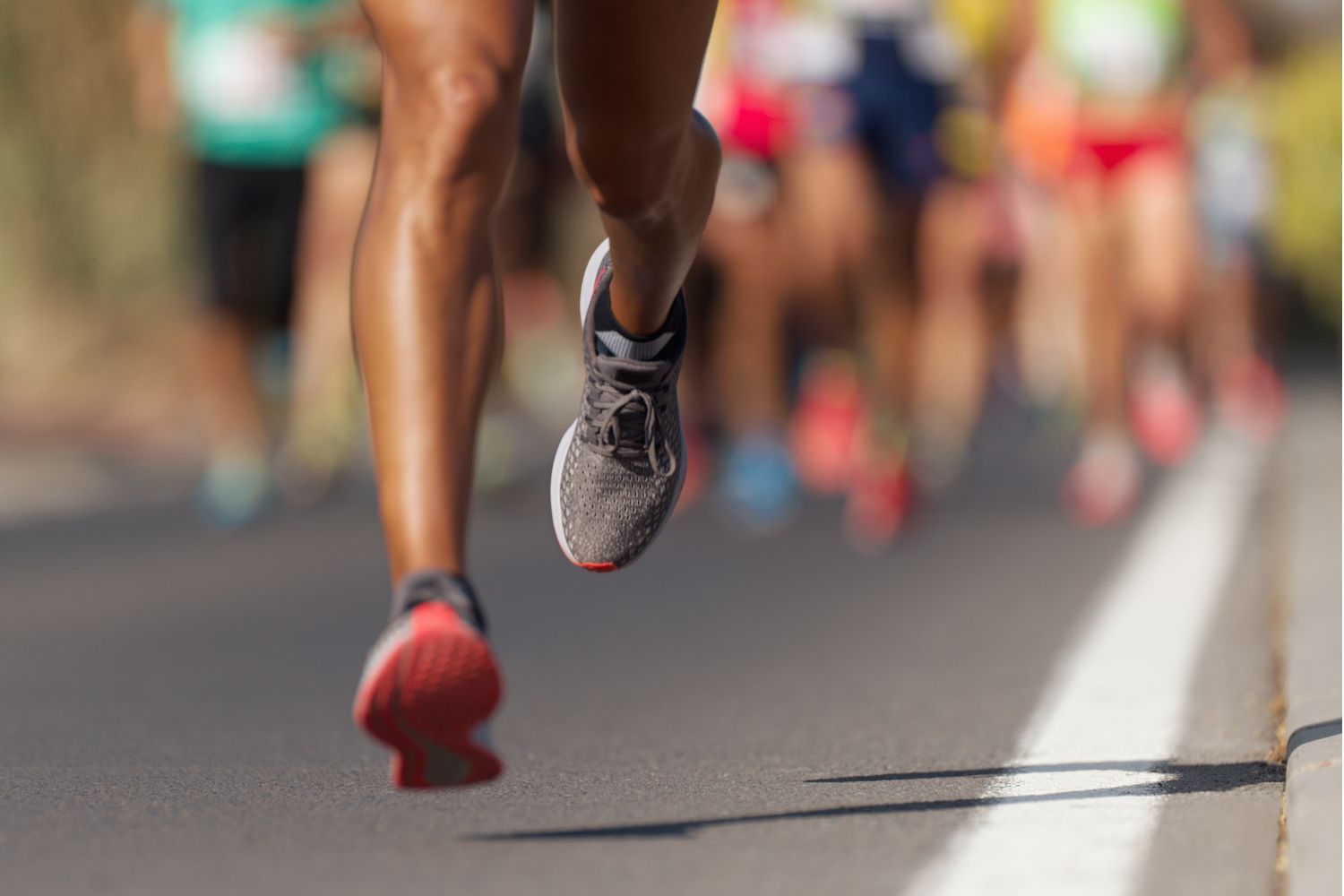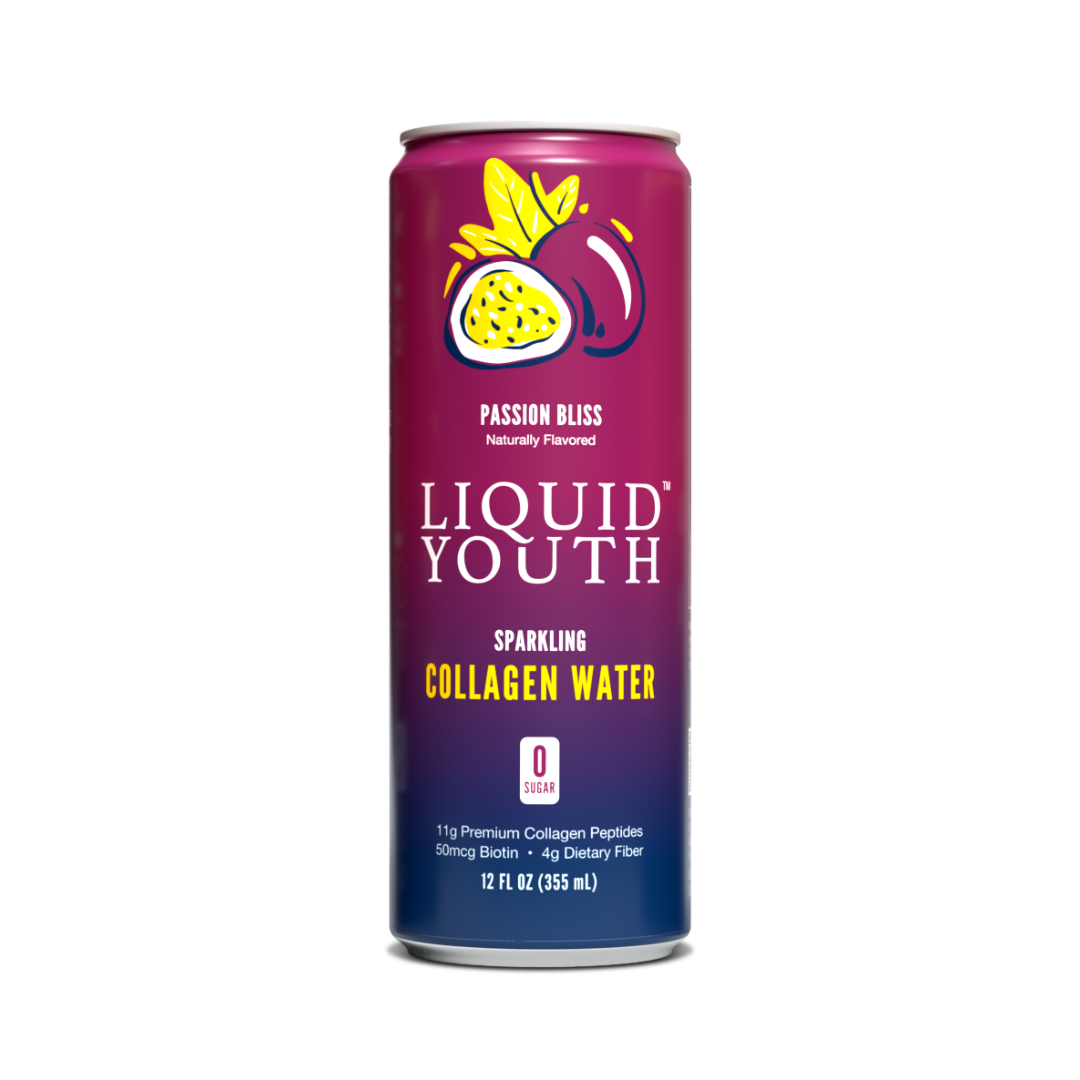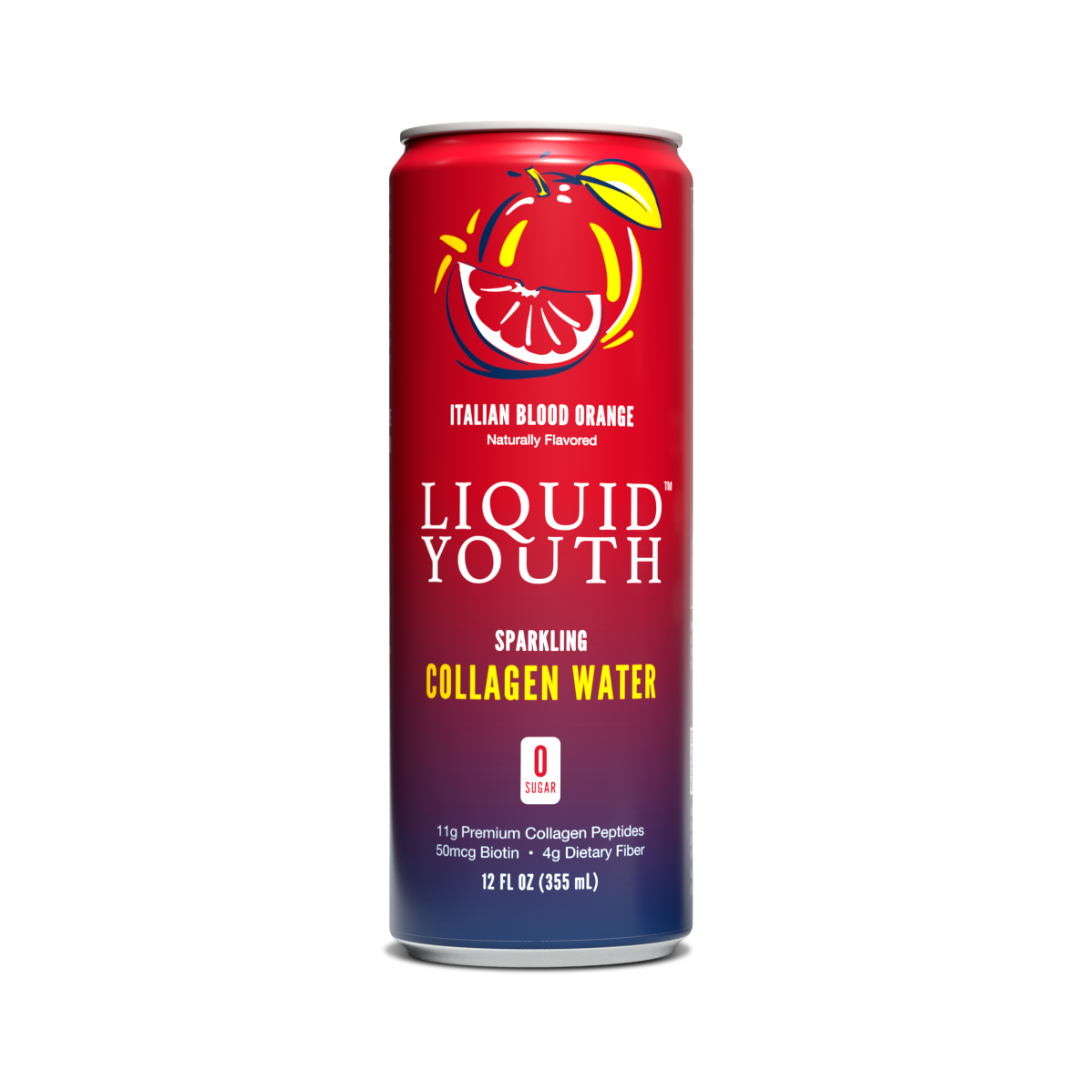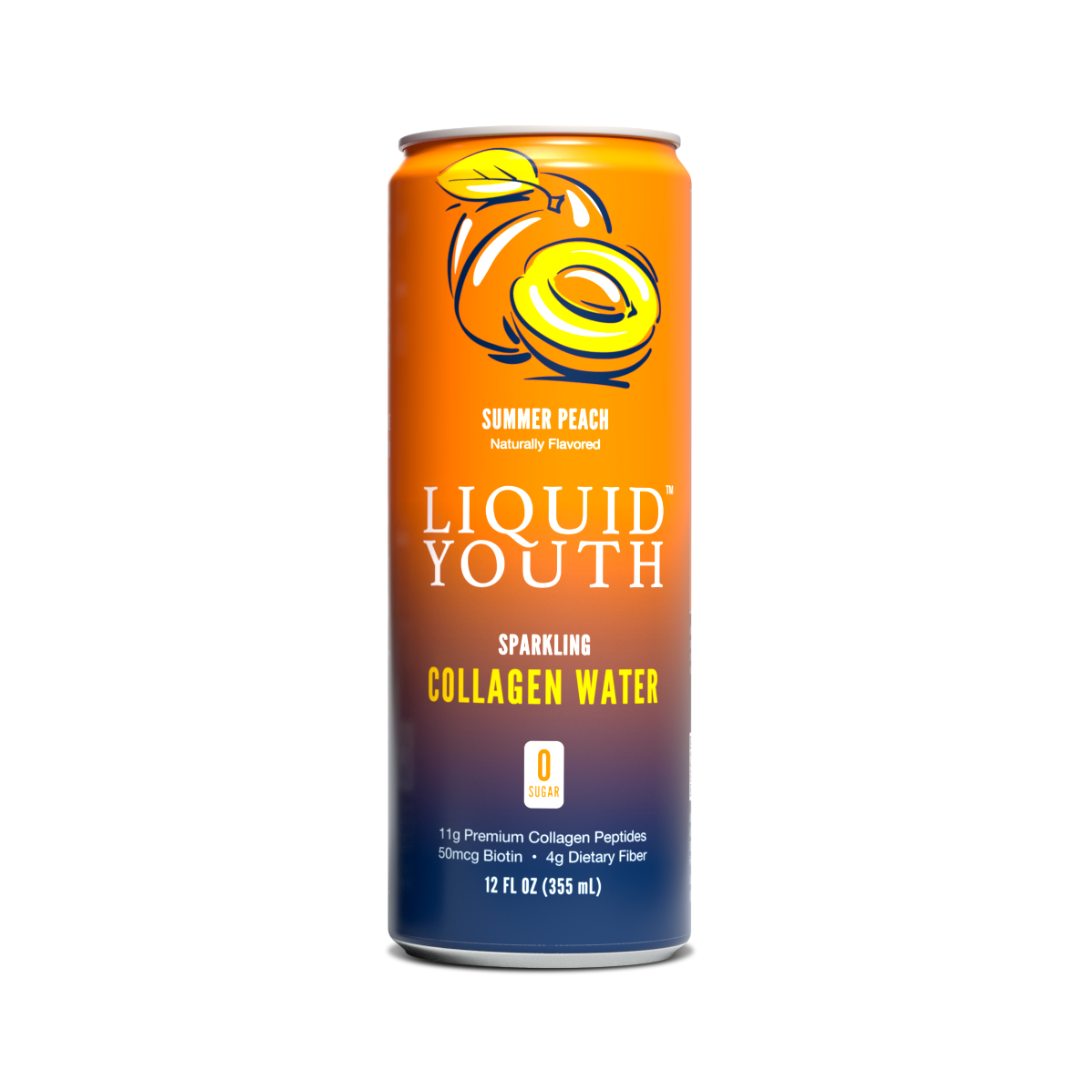The 19th Annual Liquid Youth 13.1 Fort Lauderdale Running Festival Runner’s Guide to Collagen Peptides

Article Summary
- Gradual and consistent training is vital to building endurance for a successful half marathon.
- Collagen peptides enhance joint health, accelerate recovery, and maybe a natural alternative to NSAIDs (i.e., Aleve and Ibuprofen) for reducing inflammation.
- Complementary practices like strength training, proper nutrition, and rest optimize running performance and reduce injury risk.
Liquid Youth: Your Official Race Sponsor
Excitement is in the air as you prepare to take on the challenge of your first half marathon. This year’s race, happening on November 9, 2025, is proudly sponsored by Liquid Youth, your partner in health and wellness.
We’re thrilled to announce that Liquid Youth will be at the event, handing out free samples of our refreshing Liquid Youth beverages to all runners! Our beverages are designed to support your health and wellness on race day. Be sure to visit our booth to fuel up before and after your race!
As you prepare, it’s crucial to focus on proper training, rest, and nutrition. Adding collagen peptides to your routine can further enhance your journey by reducing joint pain, speeding recovery, and supporting your body through the demands of long-distance running.
You Have Entered the 19th Annual Liquid Youth 13.1 Fort Lauderdale Running Festival! What Can Benefit Your Training?
Running your first half marathon is both exciting and challenging. The 19th Annual Liquid Youth 13.1 Fort Lauderdale Running Festival on November 9, 2025, offers the perfect opportunity to test your limits and achieve a rewarding milestone. While training, nutrition, sleep, and hydration are essential, incorporating collagen peptides into your preparation can enhance your performance by improving joint health, reducing inflammation, and aiding recovery.
Important note: It takes several weeks of consistent collagen peptide use to feel the full effects. For instance, studies indicated that a daily intake of 10 grams of collagen peptides over 12 to 24 weeks supports joint health and reduces pain.1,2 To reap the benefits by race day, start your collagen regimen now as part of your training routine.
This guide explores the science behind collagen peptides and their benefits for runners, drawing on evidence-based insights and practical tips for integrating them into your routine.
What Are Collagen Peptides and Why Are They Important for Runners?
Collagen is the most abundant protein in the human body, supporting the structure of skin, bones, joints, tendons, and ligaments. When you run, especially long distances like the 13.1 miles of a half marathon, your joints and muscles endure repetitive impact. Over time, this can lead to inflammation, pain, and even injury.
Collagen is essential for maintaining the integrity of connective tissues. Collagen peptides are derived from the breakdown of collagen, resulting in smaller peptides that are more bioavailable and easily absorbed by the body. These peptides have been shown to stimulate collagen synthesis in various tissues, including cartilage, tendons, and ligaments, which are critical for runners.
Key Benefits of Collagen Peptides Back by Science
For runners, the repetitive training stress can strain certain areas like the knees and ankles, leading to discomfort or injury. Recent studies suggest collagen peptide supplementation may significantly benefit joint health and recovery from exercise-induced strain.3-5 For example, research indicates that collagen peptide supplementation can enhance joint stability and reduce pain, particularly in individuals suffering from conditions like Achilles tendinopathy and patellar tendinopathy.1,6
Supporting Recovery and Reducing Muscle Soreness
Collagen peptides are rich in glycine and proline, amino acids crucial for tissue repair. Studies show collagen peptides reduce post-exercise soreness.
- A 2023 randomized clinical trial showed that collagen peptides significantly reduced muscle soreness and fatigue in middle-aged men after exercise.7 This is particularly relevant for runners who often experience intense muscle soreness after intense running sessions.
Enhancing Endurance and Performance
Collagen peptides improve the biomechanical properties of tendons, allowing for greater flexibility and elasticity. This supports improved running efficiency and endurance:
- A 2023 study highlighted the effectiveness of collagen peptides in improving running endurance and reducing joint discomfort during training. 8
Reducing Joint Pain
Running can cause wear and tear on the cartilage that cushions joints. Collagen peptides help restore cartilage integrity, reducing joint discomfort:
- Long-term use (6 months) of 10g/day of collagen peptides enhanced joint function and alleviated chronic pain in active adults.9 This is particularly beneficial for runners prone to overuse injuries due to the repetitive nature of their sport.
Incorporating Collagen Peptides Into Your Training
Daily Usage
Dosage: 10 grams of collagen peptides daily. However, some people may benefit from higher dosages.
How to Take: Collagen peptides are versatile—mix them into your morning coffee, post-run smoothie, or even water. They are flavorless and dissolve quickly.
Pre-Run Routine
Take collagen peptides with a source of vitamin C, such as orange juice or a fruit-rich smoothie. Vitamin C aids collagen synthesis, maximizing the benefits of supplementation.10 This combination can enhance the effectiveness of collagen peptides, particularly in promoting joint health and recovery.
Post-Run Recovery
Include collagen peptides in your recovery drink to promote muscle repair and reduce soreness. Pair it with protein for optimal recovery. Research indicates combining collagen peptides with protein can enhance recovery outcomes and support muscle repair after strenuous exercise.

Training Tips for First-Time Half Marathoners
Gradual Endurance Building:
Gradually increase your weekly mileage to prevent overuse injuries. A study found that novice runners who progressed their running distance by more than 30% over 2 weeks seem to be more vulnerable to distance-related injuries than runners who increased their running distance by less than 10%.11 Schedule a weekly long run to build the stamina needed for 13.1 miles.
Strength Training
Add resistance exercises like squats, lunges, and deadlifts twice weekly to strengthen the muscles supporting your joints. Stronger muscles reduce the load on joints and improve running efficiency. 12
Recovery and Nutrition
Experiment with hydration and fueling strategies during training. Aim to consume 30–60 grams of carbohydrates per hour during long runs to sustain energy levels.
Rest and Recovery
Incorporate at least one rest day per week and prioritize sleep to allow your body to recover and rebuild. Taper your training in the two weeks leading up to the race.
Practical Advice: Real-World Application
Think of collagen peptides as the maintenance tool for your body. Just as you would replace worn-out parts in a car, collagen peptides repair and strengthen the “parts” of your body—joints, tendons, and muscles—keeping you moving efficiently throughout your training.
The journey to completing your first half marathon is as rewarding as it is challenging. Incorporating collagen peptides into your training helps protect your joints, reduces inflammation, and improves recovery and endurance. Collagen peptides are a safe and effective supplement to help you confidently cross the finish line at the 19th Annual Liquid Youth 13.1 Fort Lauderdale Running Festival. Pair this with consistent training, proper nutrition, and rest to achieve your personal best.
Featured Products
References
1 Praet, S. et al. Oral Supplementation of Specific Collagen Peptides Combined With Calf-Strengthening Exercises Enhances Function and Reduces Pain in Achilles Tendinopathy Patients. Nutrients 11, 76 (2019). https://doi.org/10.3390/nu11010076
2 Khatri, M., Naughton, R. J., Clifford, T., Harper, L. D. & Corr, L. D. The Effects of Collagen Peptide Supplementation on Body Composition, Collagen Synthesis, and Recovery From Joint Injury and Exercise: A Systematic Review. Amino Acids 53, 1493-1506 (2021). https://doi.org/10.1007/s00726-021-03072-x
3 Kviatkovsky, S. A., Hickner, R. C. & Ormsbee, M. J. Collagen Peptide Supplementation for Pain and Function: Is It Effective? Current Opinion in Clinical Nutrition & Metabolic Care 25, 401-406 (2022). https://doi.org/10.1097/mco.0000000000000870
4 Dressler, P. et al. Improvement of Functional Ankle Properties Following Supplementation With Specific Collagen Peptides in Athletes With Chronic Ankle Instability. Journal of Bodywork and Movement Therapies 22, 858 (2018). https://doi.org/10.1016/j.jbmt.2018.09.037
5 Kumar, S., Sugihara, F., Suzuki, K., Inoue, N. & Venkateswarathirukumara, S. A Double‐blind, Placebo‐controlled, Randomised, Clinical Study on the Effectiveness of Collagen Peptide on Osteoarthritis. Journal of the Science of Food and Agriculture 95, 702-707 (2014). https://doi.org/10.1002/jsfa.6752
6 Gołda, J. et al. The Impact of Oral Collagen Supplementation on Joint Function, Muscle Recovery, and Musculoskeletal Health in Athletes: A Narrative Review. Journal of Education Health and Sport 67, 55035 (2024). https://doi.org/10.12775/jehs.2024.67.55035
7 Kuwaba, K. et al. Dietary collagen peptides alleviate exercise-induced muscle soreness in healthy middle-aged males: a randomized double-blinded crossover clinical trial. Journal of the International Society of Sports Nutrition 20 (2023).
8 Jerger, S. et al. Effects of Specific Bioactive Collagen Peptides in Combination with Concurrent Training on Running Performance and Indicators of Endurance Capacity in Men: A Randomized Controlled Trial. Sports Medicine - Open 9 (2023).
9 Kviatkovsky, S. A., Hickner, R. C., Cabre, H. E., Small, S. D. & Ormsbee, M. J. Collagen peptides supplementation improves function, pain, and physical and mental outcomes in active adults. Journal of the International Society of Sports Nutrition 20 (2023).
10 Giraldo-Vallejo, J. E. et al. Nutritional Strategies in the Rehabilitation of Musculoskeletal Injuries in Athletes: A Systematic Integrative Review. Nutrients 15, 819 (2023). https://doi.org/10.3390/nu15040819
11 Nielsen, R. Ø. et al. Excessive Progression in Weekly Running Distance and Risk of Running-Related Injuries: An Association Which Varies According to Type of Injury. Journal of Orthopaedic & Sports Physical Therapy 44, 739-747 (2014). https://doi.org/10.2519/jospt.2014.5164
12Vitale, K. & Getzin, A. Nutrition and Supplement Update for the Endurance Athlete: Review and Recommendations. Nutrients11, 1289 (2019). https://doi.org/10.3390/nu11061289


















